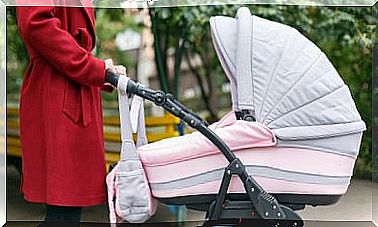11 Ways To Prevent Inflammation During Pregnancy

Today, we share 11 ways to prevent inflammation during pregnancy, as a woman is more susceptible than normal to certain infections during pregnancy. Healthy lifestyles are the best way to take care of your own health and well-being, and they are further emphasized during pregnancy. It is also important to take good care of your own hygiene and the cleanliness of the environment, especially during pregnancy.
Prevent inflammation during pregnancy
In order to prevent diseases that may be harmful to the mother and the fetus, it is essential to ensure good hygiene. By taking care of hygiene, we mean both our own personal hygiene and environmental hygiene. It is also important to take care of a clean environment to ensure comfort and safety.
Despite the fact that some of the ways we listed below may seem self-evident, they are sometimes overlooked, or we may think we are over-cautious in following them.
11 ways to prevent inflammation during pregnancy

- Always take care of good personal hygiene. It all starts with the individual’s own responsibility.
- Wash your hands thoroughly and regularly. This is definitely the best way to avoid bumps and prevent inflammation.
- Make sure you have received all the necessary vaccinations and that they are valid. Vaccinations are given based on certain criteria. Some vaccinations should be given before a woman becomes pregnant, but some are also given during pregnancy and even immediately after delivery.
- Getting the right vaccine at the right time can prevent long-term health problems. This applies to both the mother and the unborn baby.
- Wash all fresh food such as fruits and vegetables thoroughly before eating them. This way, you eliminate the most common bacteria on the surface of foods before they affect your body.
- Avoid sources of inflammation. Despite the fact that this may seem like an obvious warning, you should actively avoid being near people with an infectious disease such as chickenpox or rubella. This is really important especially if you have not had these diseases before. If you also live in the countryside, protect yourself carefully from ticks.
- Be careful near mosquitoes. Avoid mosquitoes. It is important to use mosquito repellents suitable for pregnant women and, for example, to obtain a mosquito net for protection.
- Use a mosquito repellent suitable for pregnant women or favor natural substances such as lemon and eucalyptus oil. Do not travel to high-risk areas where zikavirus-like infections can threaten your and your baby’s health.
- Be aware of those diseases and viruses that may be a threat to you in your own habitat.
- If you eat meat dishes, always make sure it is cooked properly. This, too, may seem obvious, but consuming raw meat can seriously threaten your health.
- Keep in mind that poorly cooked and processed meat can contain bacteria that are harmful to a pregnant woman.
- Check with your doctor or clinic to find out which supplements are suitable during pregnancy. Adequate doses of, for example, iron, folic acid and vitamins together will help you maintain your resistance at a time when your body is more sensitive to various inflammations.
- Be careful in public swimming pools. Public swimming pools can increase your risk of developing urinary tract infections. Because of this, try to avoid public toilets as well, and if you still have to use one, do not touch the toilet seat and take care of your hygiene.
- The same goes for any public space: look where you sit. There can be many different types of detrimental factors. These can be anything from bird droppings to dirty objects thrown into the street.
- If you spend time outdoors, do not sit on bare ground or lawn. Always bring a blanket or towel for protection. The substrate you are using should be washed after each use.
- Learn to delegate risky activities to others
- If you have a cat whose litter box needs to be cleaned, do not touch or clean it yourself. This is a particular risk of getting inflammation. So delegate the task to someone else who lives with you. If you are not getting help from anyone else, use disposable gloves when cleaning your cat’s litter box and wash your hands thoroughly with soap after the procedure for safety.
- Avoid contact with open wounds or other people’s personal hygiene items, which may contain, for example, residues from blood or other fluids that may be harmful to your health.
These recommendations are easy to implement in everyday life. If you take these tips into your daily routine during pregnancy and continue to follow them even after giving birth, they will be very beneficial to your health in the long run.
Following the advice above will also help you avoid many disgusting and unnecessary risky situations while you are pregnant. The most important thing to keep in mind is that when you are pregnant you can never be too careful and careful. You are responsible for both yourself and your future baby. This is why it is very important that both you and your baby stay healthy.









